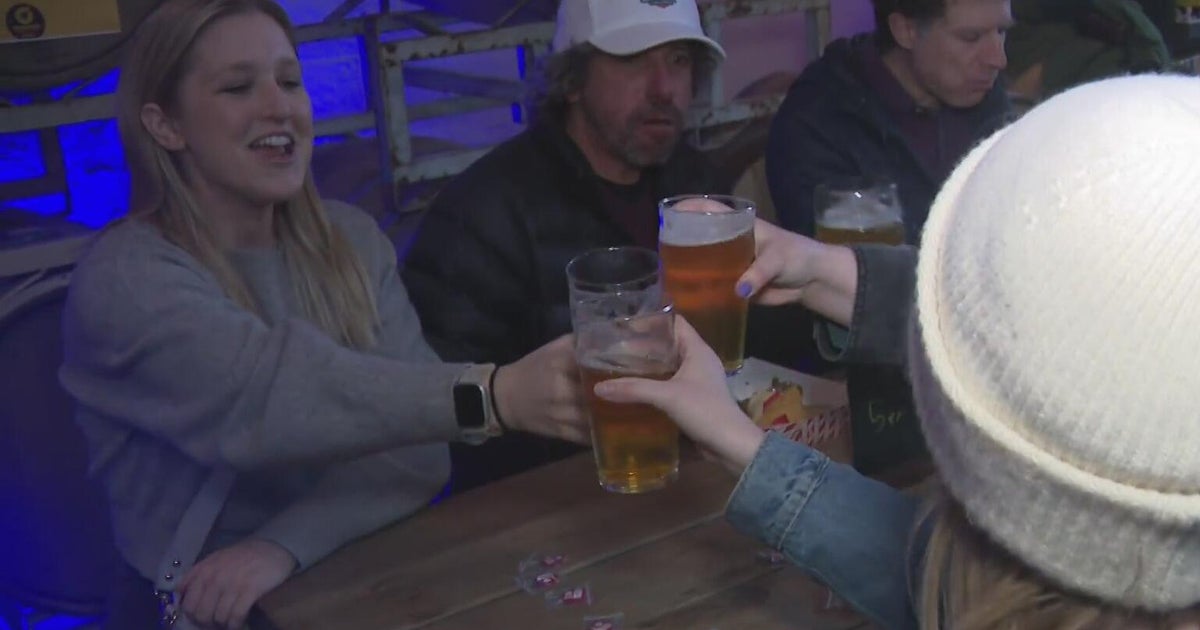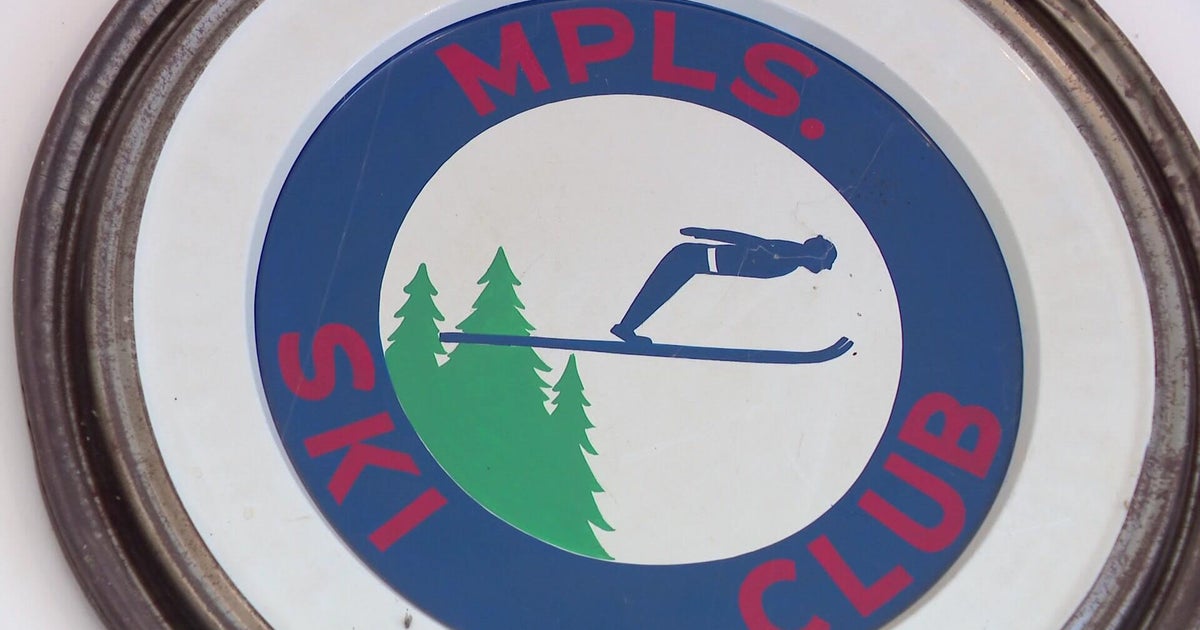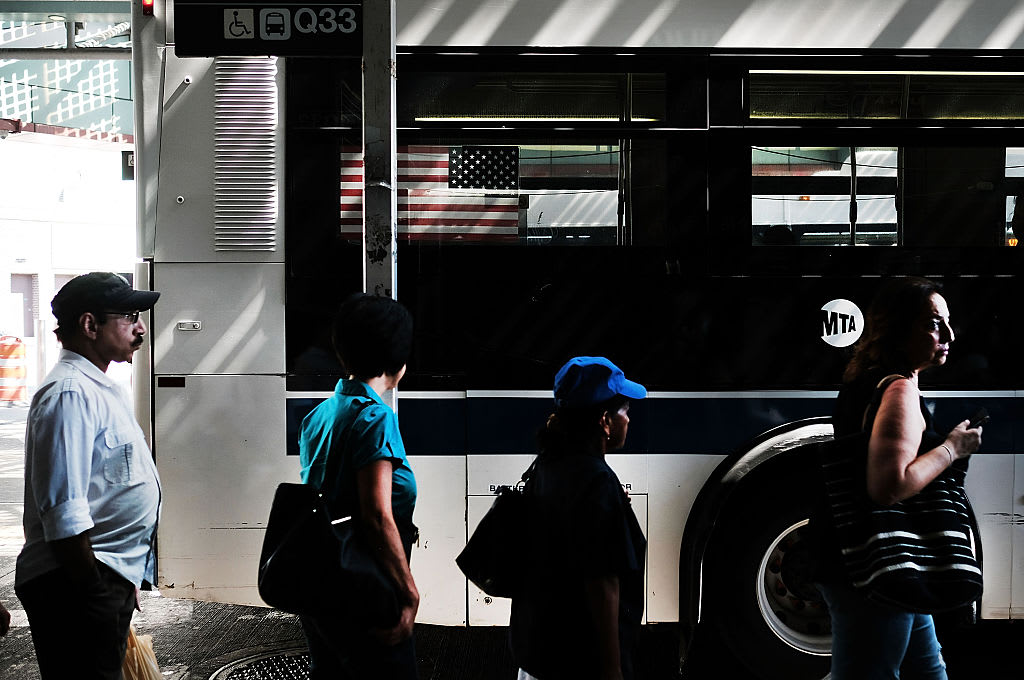How two brothers kept their New York City bar open during the pandemic
Meet Paul and Anthony Ramirez, a pair of brothers and bar owners in New York City's Bronx, who have been working to rebrand the borough for the past decade. The duo owns several small businesses aimed at supporting entrepreneurs and promoting positive imagery of the Bronx. Seven years ago, they opened the Bronx Beer Hall in the center of a historic marketplace where they could celebrate the community. The brothers spoke with CBS News to share how they were able to avoid shutting down during the coronavirus pandemic.
CBS News: What was the Bronx Beer Hall like before the pandemic hit?
Anthony Ramirez: Before COVID, our mission was to, as always, improve the image of the Bronx and help introduce people to what the Bronx has to offer in both arts and culture. We had a rotating schedule of things to keep people engaged. Anything from karaoke, and trivia, to emo and vinyl nights. We would transition from a touristy lunch crowd to a pre-drink dinner crowd. And then a whole nightlife started. Around us, there's nine different vendors including a butcher, pizzeria and an Italian deli. We were giving people a different reason to have a connection with this market setting. COVID left us no choice but to figure out other ways.
What immediate changes did you make back in March?
Anthony: COVID hit and we had to cancel all of our events. We tried our best to keep employees on as long as we could. We have a staff of 10, who depend on us as much as we depend on them. We decided we weren't gonna be getting paid for a while, and that's fine, as long as we could take care of our employees. We were still considered essential, we're in the center of the marketplace. So we introduced a reduced schedule and reduced staffing and realized very quickly that no one was leaving their house for anything.
For a lot of our staff, in addition to the pay, tips are a big part of their income — can't get tipped if no one's coming. So we kind of looked at the numbers, and we realized that we'd be doing them a disservice by keeping them on and it'd be better to lay them off so that they could collect unemployment.
How did you adapt?
Anthony: We had to keep coming up with new ideas and new products to make people want to stop by as they do their weekly grocery runs. The first thing we realized is that people weren't going to be standing there drinking draft beer. So we had to find ways to make sure they can transport all of that draft beer.
We got 64-inch jugs and started offering a more diverse selection of cans of beer. We also had to drop prices considerably as well as change our branding. For example, our Bronx Beer Hall growlers, became homeschooling growlers, because everyone was homeschooling.
We even made two bars so that would alleviate any issues of people lining up six feet apart and being outside the market. Now, we have a craft beer box that we're working on, hopefully in time for the holidays that people could gift.
Businesses across the nation have taken financial hits. How did you financially support yourselves to keep your doors open?
Anthony: We applied for everything that came our way. We were behind on rent, we had to pay bills, etc. We were able to get some funding through a couple of our businesses, enough to sustain us probably for a couple months. But it wasn't the easiest process, especially when you're struggling to keep your doors open and then you have to figure out how to get through this application process. We're very community-focused, and so getting through the process ourselves was daunting, and then seeing the issues our neighbors were having and helping them was even wilder. Like, this guy's never opened a laptop before. How is he supposed to get the funding that he needs if I'm having trouble?
How is the business doing with outdoor dining?
Anthony: Someone always comes to me without fail and says, "Man, those streets are packed, you guys must be doing great. COVID is not affecting you at all." And behind my mask, I'm like you are out of your mind. I mean, you got six tables outdoors, and you have 100 tables indoors, it's a fraction of your business. A lot of people, unfortunately, who have small businesses run on debt. They get their product upfront, and then they pay their vendors after the fact. It's not sustainable when you're serving only a fraction of your normal audience.
There are many small businesses that were not as fortunate as yours and were forced to permanently shut down. What does the future of small businesses look like to you?
Anthony: It's about our community. We're the ones that are going to sustain one another, and we're the ones who are going to keep small businesses in business. It's the community deciding that you're not going to save the two bucks by going on Amazon, but go to the corner and buy what you need for two more dollars, understanding that they're their costs and their operational costs are different.
I think, unfortunately, we'll see a lot more businesses closed before the end of 2020, and in the beginning of 2021, and if the pandemic hits again, then it'll be even worse. Right now, people are scraping by and hoping that things improve. And it's a scary time to own a small business.





